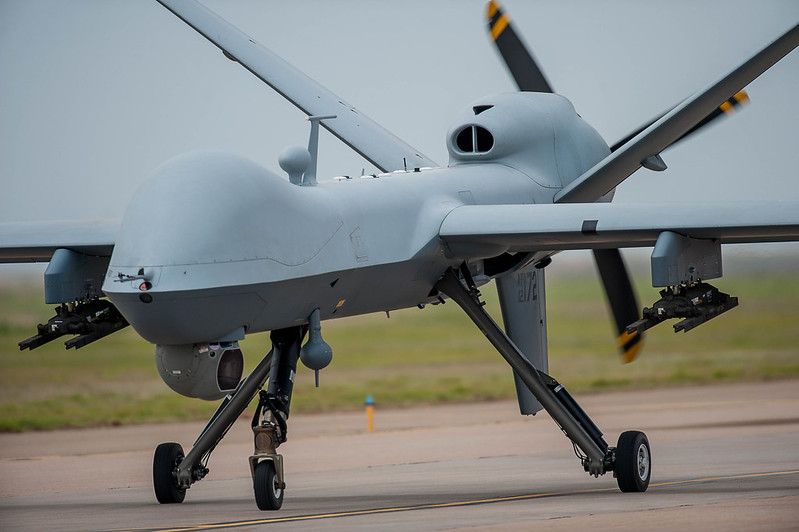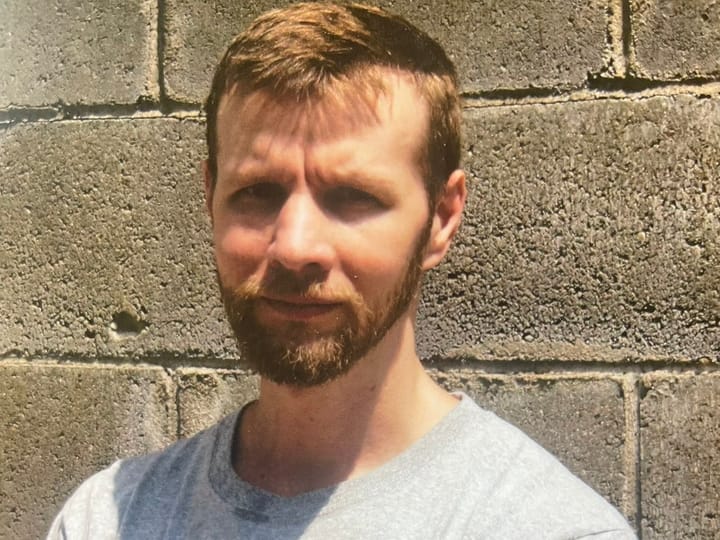The Kabul Strike: Drone Whistleblowers Speak Out On How Normal It's Become To Kill Muslims

During a hearing on Capitol Hill, General Frank McKenzie, the commander for United States Central Command, contended a drone strike that killed an aid worker and his family in Kabul, Afghanistan, did not occur under any pressure to retaliate. The drone operators acted on intelligence seen on the ground.
He insisted drone operators routinely follow the same procedure, but this time, tragically, U.S. military forces got it wrong.
But U.S. military strikes in Afghanistan killed at least 4,815 civilians between 2001 to 2021, according to Airwars. Innocent people die more often than military officials are willing to publicly acknowledge.
On September 30, Defending Rights and Dissent organized a panel with several drone whistleblowers to share their assessment of the drone strike in Kabul and make up for the lack of accountability and reflection among officials.
Lisa Ling, a former tech sergeant who worked on drone surveillance systems, contended the idea that forces can be a distance away and get all the data necessary to be “situationally aware” is flawed.
“What happened in Kabul, the innocent civilians that were killed, the car was spotted outside of an NGO, a California, United States NGO, and no one could distinguish this from a ‘terrorist,’” who was going to attack the US “imminently,” which Ling noted is not even really defined.
Ling added, “All of this arbitrary collection from cell phones, trying to do facial recognition from something that flies over your head. the whole idea of it is ridiculous—All they needed to do was get the license number of the vehicle and see who owned it.”
Or maybe they should have a “no strike list” for NGOs that work with the United States, she suggested. However, they cannot even develop a list like that to protect hospitals.
'Severity of the Casualties' Was 'Really Extreme'
Christopher Aaron, a former intelligence analyst for the CIA’s drone program, described the “severity of the casualties” as “really extreme.”
“In my past experience, when we had mistakes such as this, it was more on the order of like one or two casualties per strike (not that that’s any less significant),” Aaron said.
The “parting strike” was one of the “most severe mistakes” committed during the war, which Aaron called ironic. “I don’t want to say that was intentional, but it sure seems somewhere there in the chain of command there was someone saying let’s be incredibly brazen as we go out of this theater.”
Keagan Miller, a former NSA intelligence analyst, suggested it was wrong to believe the “military is always objective.” An attack on the Kabul airport had just killed 13 U.S. service members.
“The people in the intelligence community can get caught up in that too. It’s really hard when you want to be objective and take the emotion out of it. But there’s a lot of people that aren’t willing to do that because they just want to do something. They just want to respond.”
“What’s the way to respond in the military? It’s to bomb something,” Miller added.
On August 29, Zemerai Ahmadi, an aid worker and father, was targeted in a drone strike. It killed him along with his sons, Zamir (20 years old), Faisal (16 years old), and Farzad (10 years old), and his two nephews, Benyamin and Arwin, who were six and seven years old, according to New York Times reporter Matthieu Aikins.
Three girls were also killed in the drone strike: Hayat (2 years old), Somaya, (3 years old), and Malika (3 years old).
The Pentagon immediately cast Ahmadi as an Islamic State militant while outlets like the Associated Press put out reporting that showed the U.S. massacred a family, which had “worked for Americans and were trying to gain visas to the United States, fearing for their lives under the Taliban.”
Can Dropping Bombs Stop People From Hating America?
At the end of September, days after media reporting forced the Pentagon to admit they committed an “error,” McKenzie, Defense Secretary Lloyd Austin, and Joint Chiefs of Staff Chairman General Mark Milley appeared before the House and Senate Armed Service Committees. They testified on the withdrawal of U.S. forces from Afghanistan.
Only a minimal amount of time was spent on the strike that nearly wiped out an entire family.
Missing were the voices of people with experience in the drone programs, who could speak to how predictable it was that 10 innocent civilians tragically died.
Ling is not shocked that people are killed as a result of “faulty data.” But she is stunned that few Americans are disturbed by the fact that it has become completely normal to kill Muslims.
Cian Westmoreland, a former U.S. Air Force technician, believes the entire “war on terror” must be reevaluated.
“You can’t fight terrorism with something that is equatable to terrorism. We experienced 9/11 back in 2001, and it was really traumatic for us. A lot of these people are experiencing 9/11 every day,” Westmoreland declared.
On the costs of war, he continued, “Think about the conditions these people are facing, and when you start destroying infrastructure it takes funds to rebuild that infrastructure. You can’t manage your land properly. You can’t grow crops properly. You can’t do these things you need to live properly, and it ultimately results in failed states, which breeds more resentment and more desperate people, who have to turn toward things that they may have not otherwise turned toward.”
Westmoreland mentioned how there is no “external oversight body” for reviewing U.S. drone strikes. That means there is no real mechanism for compensating the families of victims. It is largely an ad hoc process that unfolds in secret and at the discretion of U.S. diplomats and military leaders.
Congress needs to demand more answers, Miller declared. “The biggest thing that I care about is transparency, and ultimately, if we want to say that we have a free and transparent government, then we need to actually follow up on that.”
“And if we want to say that we are a player on the world stage, then that also means that we are answerable to everybody.”
“We really need to look deeply at whether or not, if in the future a society hates us or a society as a whole has significant members within it that are opposite to our way of life in the West, can we stop that by dropping bombs on them?” Aaron asked. “I would say the answer has proven to be no.”
All four of the whistleblowers showed solidarity for Daniel Hale, who was sentenced to prison for “violating” the Espionage Act when he released documents that exposed the true nature of U.S. military’s drone program, including how often it kills people who are not alleged militants.
Ling pointed out there are very few incentives for drone whistleblowers to come forward. Banking whistleblowers are encouraged by financial rewards. “When it comes to the intelligence community, you have to hurdle over mouse turds, if you actually can figure out from inside this secretive place how to report something.”
Fortunately, there was CCTV footage to demonstrate the U.S. military did not kill an ISIS-K planner. Most of the time these strikes occur in rural areas without surveillance cameras to counter the propaganda of military officials.
As the human rights organization Reprieve documented back in 2014, the U.S. government previously claimed to have killed terrorist leaders multiple times. “Twenty-four men were reported killed or targeted multiple times in Pakistan. Missed strikes on these men killed 874 people. They resulted in the deaths of 142 children.”
To be clear, that means the CIA and/or U.S. military target the same name on their kill lists. They fail to assassinate him, but instead kill innocent people.
“Eighteen men in Yemen were reported killed or targeted multiple times. Missile strikes on these men killed 273 others and accounted for almost half of all confirmed civilian casualties and 100 percent of all recorded child deaths," according to Reprieve.
Ayman al-Zawahri, the al Qaida chief, may be dead from an illness. He appeared in a 9/11 anniversary video. But if he died from an illness and not a strike, that is remarkable because the CIA launched multiple attacks against him, killing 76 children and 29 adults but not him.
Baitullah Mehsud, the commander of Tehrik-i-Taliban Pakistan, was "directly targeted as many as seven times, during which 164 people were killed, including 11 children."
Airwars detailed five prior examples of families, which suffered strikes similar to the one that killed Ahmadi's family. They still wait for justice.
General Milley insisted, “This one strike was bad. It was tragic. It was horrible. But that is not to say that the intelligence system as a whole is wrong.”
Drone whistleblowers with past experience in the “targeted killing” program disagree. They are not confident in the system. Instead, they're ashamed for America because they know the reality too well.




Comments ()